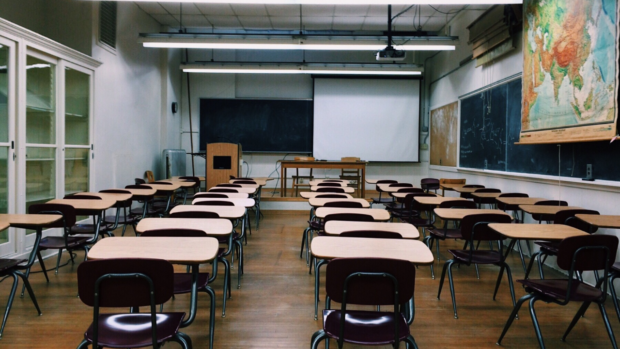Unicef: Many children drop out as in-person classes reopen
MANILA, Philippines — As the COVID-19 pandemic continued to worsen the learning loss of children globally, emerging data from the United Nations Children’s Fund (Unicef) found that many children have dropped out as classrooms reopened for in-person classes.
In the Philippines, the number of out-of-school youth rose at the onset of the pandemic from 16.9 percent in January 2020 to 25.2 percent three months later in April 2020, based on a study released by the US Agency for International Development in November 2021.
While various distance learning approaches were implemented and the remote classes were considered a “victory” by the Department of Education (DepEd), there were at least 1.1 million students who did not enroll for school year 2020 to 2021 due to lack of internet access, among other reasons.
The official enrollment at the basic education level reached 27.2 million on Nov. 15, 2021, according to the DepEd’s Learner Information System.
This was 3.83 percent higher than the 26.2 million enrollment in the previous school year when the restrictive lockdowns were imposed due to the pandemic.
The DepEd said it would release this week the updated number of children who dropped out of school and, in a statement last week, noted that it was working on a “learning recovery plan” intended to address the gaps and challenges brought by the pandemic.
In neighboring countries, various measures have been in place such as an early warning system developed in Malaysia to monitor the children at risk of dropping out. Their Ministry of Education also tracks out-of-school youth with the help of local authorities and community leaders.
In Thailand, a nationwide effort aimed at identifying children not returning or at risk of not returning to school was also underway, Unicef said.
Most vulnerable
In other countries such as South Africa, Unicef said the number of out-of-school children tripled from 250,000 to 750,000 between March 2020 and July 2021, while around one in every 10 schoolchildren in Uganda did not return to school in January after a two-year closure.
The dropout rate among secondary female students in Malawi, a landlocked country in southeastern Africa, increased from 6.4 percent to 9.5 percent between 2020 and 2021 while in Kenya, 16 percent of girls and 8 percent of the boys among 4,000 survey respondents said they did not return to schools when they reopened.
“Out-of-school children are some of the most vulnerable and marginalized children in society. They are the least likely to be able to read, write or do basic math, and are cut off from the safety net that schools provide,” Unicef said in a statement last week.
This puts the out-of-school youth at increased risk of exploitation and a lifetime of poverty and deprivation, the humanitarian organization added.
Unicef also noted that with the current “slow learning pace,” most schoolchildren would take seven years to learn basic reading skills and 11 years for foundational numeracy skills, which should have been grasped in two years.
As the public health crisis enters its third year, Unicef said that 23 countries catering to around 405 million learners were yet to fully reopen their schools, “with many schoolchildren at risk of dropping out.”
“This rising inequality in access to learning means that education risks becoming the greatest divider, not the greatest equalizer. When the world fails to educate its children, we all suffer,” said Catherine Russell, Unicef executive director.
Reading problem
Learning poverty, described by the World Bank as the share of 10-year-olds who cannot read or understand a simple story, has been worsened by two years of school closures due to COVID-19, according to Unicef.
In the Philippines, the latest Unicef assessment showed that less than 15 percent of schoolchildren, or about three in every 20, can read simple texts, in large part due to the closure of schools for more than 70 weeks, the longest among 122 countries covered by the Unicef report.
This translated to a learning poverty of 85 percent. In 2019, or before the pandemic happened, the rate was 69.5 percent, according to the World Bank.
Unicef’s latest joint report with the UN Educational, Scientific and Cultural Organization (Unesco) and the World Bank titled “Where are We on Education Recovery?” showed that schools in the Philippines had been closed from face-to-face classes the longest among the 122 countries covered.
Since the onset of the pandemic in mid-March 2020, only a few schools in the country have returned to in-person instruction and the government had piloted face-to-face schooling in public schools, but in a limited scope as COVID-19 continued to rear its ugly head.
“Schoolchildren around the world have missed an estimated two trillion hours — and counting — of in-person learning since the onset of the pandemic and subsequent lockdowns,” Unicef added.
Unicef noted that even before the pandemic more than half of 10-year-olds in low- and middle-income countries were unable to read or comprehend a simple story — “now that figure is estimated to be as high as 70 percent.”
RELATED STORIES
DepEd: Over 10,000 schools OK’d to resume limited in-person classes
DepEd eases rules for schools to resume in-person classes
Pediatric vaccination ‘vital’ to reintroduction of in-person classes – DepEd
